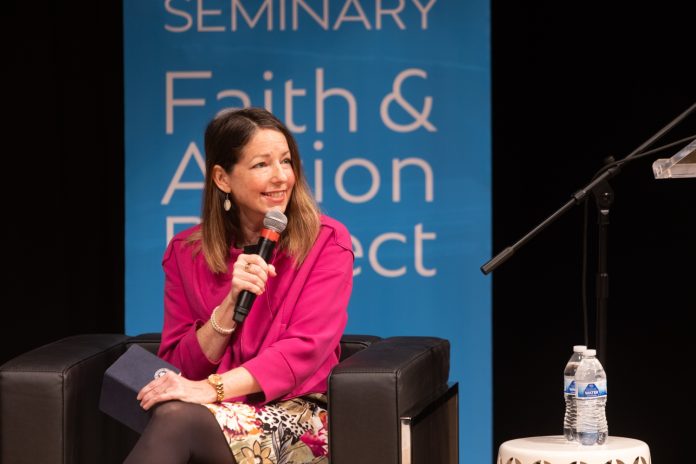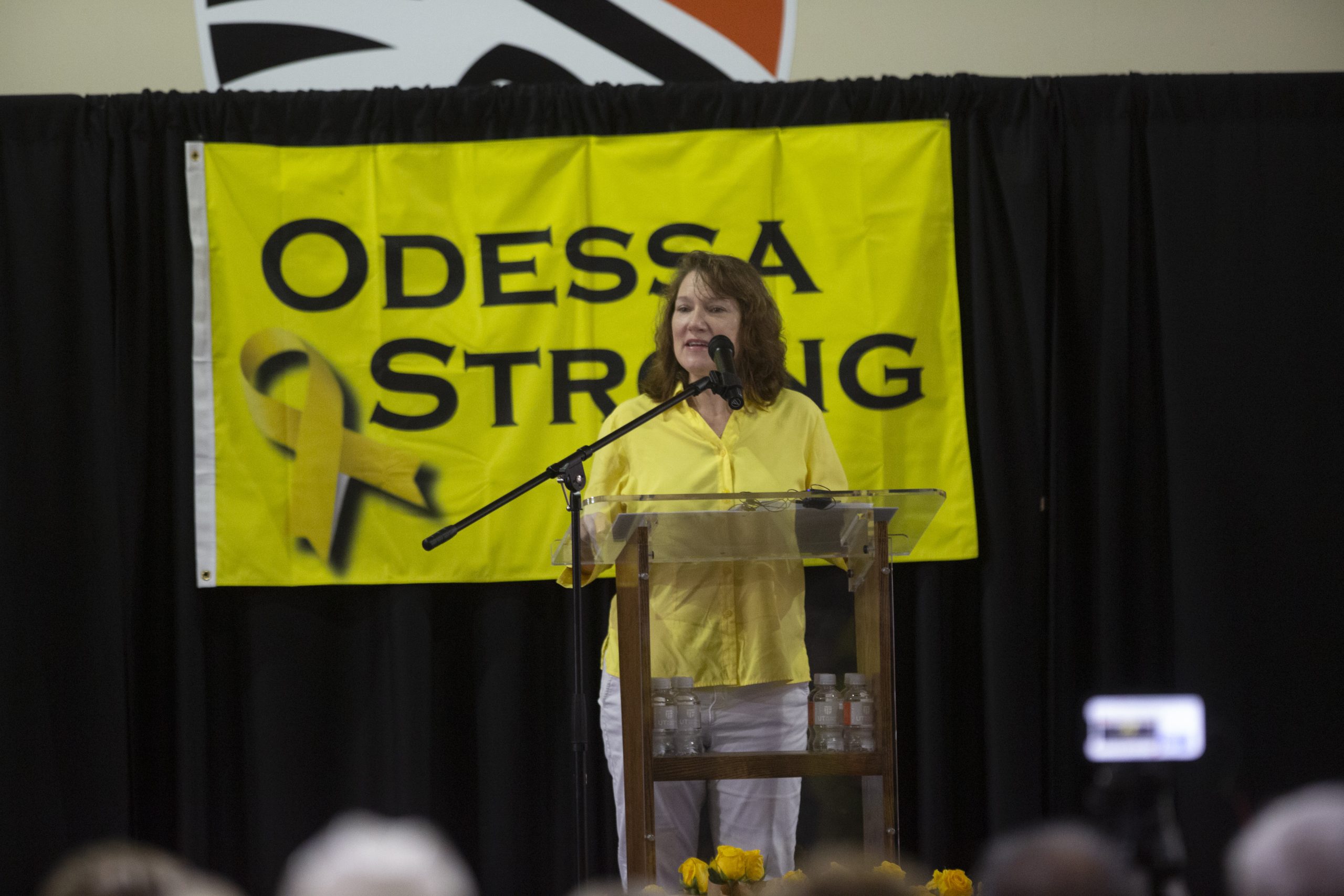
An ordained pastor and nationally known mental health advocate is the featured speaker for Blessed Youth: Caring for Youth Mental Health in the Permian Basin.
Sarah Lund, an ordained pastor out of the United Church of Christ in Indianapolis, will be in Odessa for the event, scheduled for 10 a.m. to 12:30 p.m. Jan. 16 in Rea-Greathouse Hall at the Wagner Noël Performing Arts Center. Tickets are $15 and are available on Eventbrite. It includes lunch and continuing education credits are available.
It is sponsored by Connection Christian Church, Faith Inclusion Network, First Christian Church, Grace Presbyterian Church, Permian Basin Behavioral Health Center and St. Nicholas Episcopal Church. Along with Lund’s appearance, there will be small-group discussions about youth mental health in the Permian Basin and how “we can work together more effectively for the sake of our kids,” said Rev. Dawn Weaks, co-pastor of Connection Christian Church.
Participants will include Weaks and other clergy from the community such as Mary Beth Anton and Amy Haynie. The goal and hope is that churches will learn from this event how to more effectively participate in mental health care for kids.
Lund is a member of several national mental health advisory groups and she has written three books on mental health. Weaks said the most recent is on youth mental health and includes a guide for teens so they can help themselves and their friends.
“This at least (ensures that) they have adequate information (and) that what they’re sharing is accurate. … It’s been wildly popular in terms of numbers sold. School districts are giving them out and churches are giving them out and trying to combat, especially in rural areas like this where there’s not readily accessible mental health care, to try to give as much support that is not expensive and is accessible,” Weaks said.
Groups often work on mental health in the community, but Weaks couldn’t think of anything like this on youth mental health that will pull together schools, the counseling community, faith community and mental health advocates all in one space, she added.
“There are often groups doing things for mental health, so this is by no means unique in that way. We’re trying to reach anybody who relates to youth, including parents to come and be a part of this to hear a positive word about what we can do in this very serious situation we’re facing with youth mental health,” Weaks said.
The idea for the conference stemmed from a desire to see churches “more intentionally connect with the problems and opportunities in our community … and be a part of the solution,” she added.
“It came out of a coalition of churches saying what’s a need in our community and how can we offer something that is a positive connection to helping with that,” Weaks said.

Asked if the flurry of threats at the beginning of the school year also contributed to the idea for the conference, Weaks said the concept started long before that beginning with the Aug. 31, 2019, mass shooting, and then exacerbated by COVID. The lack of mental health accessibility also played a factor.
“Most of our counseling centers have a two-week waiting list to get in. All of those things we’ve known. This is an area that needs our support,” Weaks said.
She added that she hopes the stigma around asking for help has diminished.
“I think people are being more open when they have received help and that encourages and empowers other people to get help, so if those who have had a hard time and gotten through it with some resources will speak and give testimony to that, that is what I see that encourages other people to get help,” Weaks said.
“I think we’re getting better about some of the warning signs and the symptoms … We have really improved access in our public schools … There’s a great program with ECISD (Ector County ISD) and Texas Tech where psychiatric care is available to kids through school nurse offices. We’re doing good things to try to get more access,” she added.
Youth mental health is important as kids don’t have the perspective to know that things will get better.
“They need adults to tell them that. Research shows that if a kid has one consistent, caring, encouraging adult in their life, they can do much better and that’s true with mental health, as well. They just need that connection, that access point, to someone who is going to help them figure out things will get better,” Weaks said.
She added that parents and grandparents should be asking if things are OK with their children. Weaks said it’s a question we should be asking youngsters and people who work with them “so that we can work together to make things OK for our children.”
Organizers are planning for 80 people.
“It really is a think-tank, people who are really working with kids, so if we get 80 … I think we will have some good things happen,” Weaks said.



